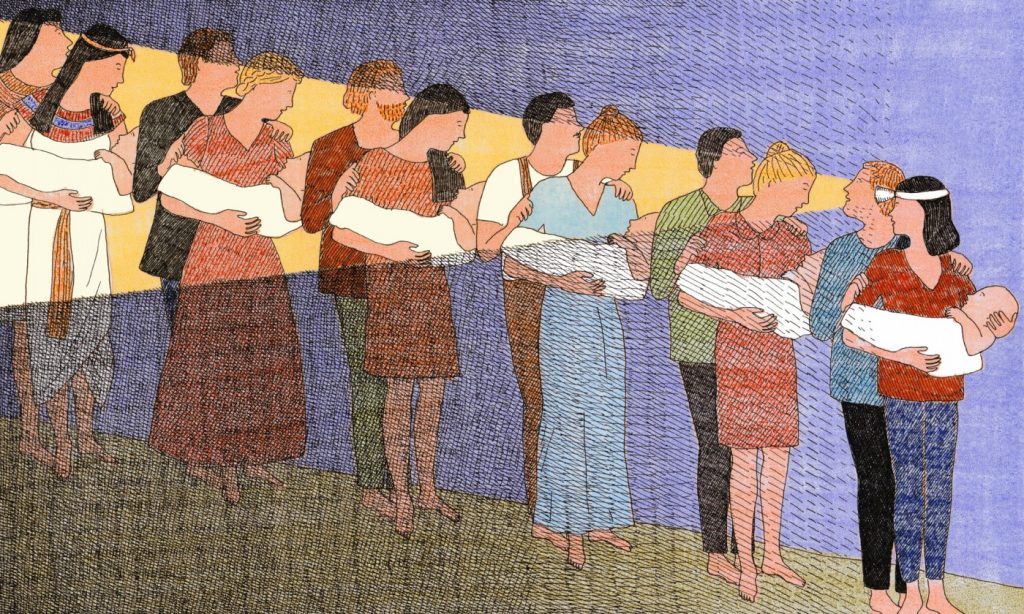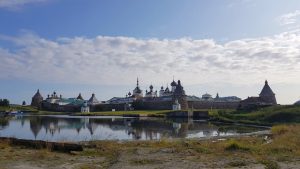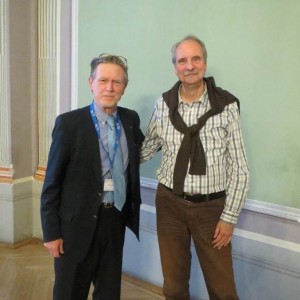
Archaeology and mothering, image by Marion Fayolle
A guest post by outgoing BSc Anthropology student Natalie Campbell.
While mature students may make up a minority of the student cohort our numbers are not insignificant. There can be advantages to returning to academia later in life. We may bring significant life and work experiences with us and often the driving forces behind our pursuit of education make for dedicated students. However, while we may not be leaving home for the first time and learning to stand on our own feet, we often have to contend with a weight of responsibility not experienced by your average school leaver. Many mature students have careers, homes and families to support requiring a constant juggling act of time and priorities. To me, this juggling act has never been more apparent than throughout the Covid-19 global pandemic.
I myself am a 3rd year undergraduate student studying BSc Anthropology. I am in my 30’s and have three children. As with many undergraduate degrees my final year has been dominated by my dissertation where I explored mothering in prehistory.
The following excerpt is the evaluative supplement of this dissertation where I reflect on the parallels between my research and my experience as a student and mother during lockdown.
I cannot reflect on this paper without first acknowledging the extraordinary circumstances in which it was written. The global pandemic has deeply impacted each and every one of us and encroached into every aspect of our lives for the past year. I cannot fail to see the irony of attempting to complete a dissertation exploring motherhood experiences while I myself, like millions of mothers around the world, was attempting to navigate a new motherhood experience of juggling childcare and home-schooling while working in lockdown. I am not ashamed to admit that during this time I experienced levels of stress I have never known before. However, the experience has taught me valuable lessons both academically and as a mother in patience, prioritising, flexibility, organisation and time management.
Throughout the entire process from researching to writing I was compelled to make considerations and accommodations for my children and other responsibilities. Whether that meant being mother by day and student by night or reading articles with a 4-year-old perched on my knee while watching more TV than is considered healthy. Reflecting on this has given me a deeper insight into how women’s lives are impacted by motherhood and how much of the mothering experience is about evaluating the situations put before us and putting considerations for our children at the heart of our response.
It is my hope that this insight was carried through into my research project, and that I was able to successfully demonstrate that mothering cannot be reduced to those large events such as childbirth and weaning, that are often the subject of anthropological and archaeological research. Much of mothering is in the small moments of care and consideration that take place every day, which may seem on the surface as invisible not only today but also in the archaeological record. However, by taking a more holistic approach we may be able to scratch the surface and see small traces of mothering in unexpected places such as the diet of a sick child or the positioning of bodies in graves.
While formulating a methodology for my project I struggled to compile a scientific framework that could present these intangible aspects of mothering in context, without losing the personal human experience aspect of mothering. When I was introduced to the concept of a fictive osteobiographical narrative I recognised its potential to represent scientific data in an accessible way. This was important to me as I was keen not to weigh motherhood down with academia to the extent that the human experience is lost. This is a fine line to tread while researching and writing for academic purposes. While some may consider a fictive narrative beyond the scope of academia, I believe it serves as a necessary reminder that behind the data, hypothesise and science are the real people who lived conscious, messy, complicated lives.
At the very beginning of this project, I was advised to choose an area I was truly interested in, otherwise I would be thoroughly tired of the subject by the end. When I first read the case study of the multiple burial at Monkton-Up-Wimborne I was instantly struck with a sense of empathy, not for any specific suffering or hardships they might have faced in life but as one mother to another recognising the extra mental load that comes when factoring children into every aspect of our lives. I remember remarking that I could barely get my children to school without some level of stress yet alone repeatedly escort them to the Mendips and back on foot! In contemporary Britain such an undertaking would require immense planning and consideration and I felt compelled to know if the same were true of Neolithic Britain.
I was to learn through my research that this line of thinking has the potential to create a bias in how we perceive the movement of women in past sedentary societies, where outdated assumptions that women only moved for marriage have prevailed. More research into the motivations behind female mobility is clearly necessary.
Further areas identified throughout this study for future research involve the visually identifiable impact of mothering on skeletal remains, including physical markers of carrying children and whether the higher levels of stress identified in Neolithic women was purely due to pregnancies or if the exertions of mothering had an impact too.
Finally, while this undertaking has been one of the hardest challenges I have faced, I can honestly say it was worth every moment of stress experienced. I entered this degree with the intention of improving my potential in order to support my family, but along the way I have discovered a passion for research which moving forward I would love to foster and develop.














 Dr. Ashraf cited on ‘Modest Fashion’ in The Guardian
Dr. Ashraf cited on ‘Modest Fashion’ in The Guardian NIHR-funded research launches website
NIHR-funded research launches website Academics write for newspaper in Nepal
Academics write for newspaper in Nepal New paper published on disability in women & girls
New paper published on disability in women & girls Global Consortium for Public Health Research 2025
Global Consortium for Public Health Research 2025 MSCA Postdoctoral Fellowships 2025 Call
MSCA Postdoctoral Fellowships 2025 Call ERC Advanced Grant 2025 Webinar
ERC Advanced Grant 2025 Webinar Horizon Europe Work Programme 2025 Published
Horizon Europe Work Programme 2025 Published Horizon Europe 2025 Work Programme pre-Published
Horizon Europe 2025 Work Programme pre-Published Update on UKRO services
Update on UKRO services European research project exploring use of ‘virtual twins’ to better manage metabolic associated fatty liver disease
European research project exploring use of ‘virtual twins’ to better manage metabolic associated fatty liver disease